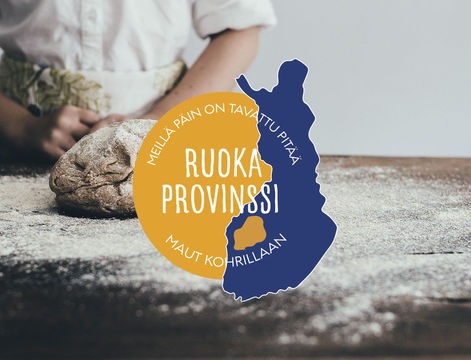
Updated Food Province label ready to work
Food Province is a regional food brand in the region of South Ostrobothnia that has been further developed.
The food sector as a whole is faced with major challenges that arise from changes in the sector´s economic and non-economic environments. The availability of safe, sustainable and healthy food has taken a new and pressing dimension in the light of an ever-growing global population and increasing environmental and sustain¬ability concerns.
Technology has already substantially re-shaped the business models, value chains and efficiencies in this sector, but a new wave of driven innovation is needed to give response to this new demand.
A special feature of the food production sector in Europe is that the 99% of the enterprises, generating 50% of the turnover, are SMEs. These current challenges cannot be met by any individual enterprise but require concerted actions and coordination of initiatives.
Aware of the role that innovation may have in giving response to this demanding sector, the NICHE project wish to realize its potential by effectively promoting policies in 7 European regions where food has been identified as a key sector to apply existing research and innovation strengths.
By working together the NICHE partnership aims, by 2019 and through the improvement of existing policies, achieve an average 15 % increase in the adoption of research and innovation solutions by food sector companies in their regions to give response to the demand of this sector identified as high-potential sector for their smart growth.
In doing so is key the creation of the right conditions to maximize all this existing potential in the way of establishing effective open innovation ecosystems, at both regional and interregional level, that will bring together all the relevant actors to facilitate technology and knowledge exchange that will be translated in new products and services.
The project will establish these ecosystems that will last beyond the NICHE's lifecycle and where involved stakeholders will benefit of a more effective and productive way of collaboration.
€1,225,209.00
Research and innovation
The project concretely address: Priority Axis 1. Promotion of technology transfer; Thematic Objective 1 – consolidation of research, technological development and innovation; Investment priority 1(b) which specific objective focuses on the increase of innovation in companies through supporting innovation and technology transfer entities in the fields of smart specialization. The aim of these investments consist in achieving a broader transfer of research results into innovative commercial applications and aim the consolidation of the smart specialization sectors at regional levels, in order to ensure an efficient capitalization of comparative advantages. The measures funded under this thematic objective will be market and business oriented. The Regional Operational Programme 2014-2020 is not customized enough on business niches of key sectors, agrofood included, and on the regional specificity of the business environment. These are aspects that should be improved. One way to increase the competitiveness of the region is related to the creation of high value added niches, based on technology driven innovation. Together with the introduction of entrepreneurship and innovative business development courses, a large network of business incubators, accelerators and ad hoc training activities offering a wide range of services (such as: working spaces; coaching services for entrepreneurs; exposure to foreign experiences, and networking opportunities), should be set up.
The project addresses Thematic Objective 01 of the ROP - Strengthening research, technological development and innovation, more concretely the investment priority 1b focused in promoting business investment in R&I, developing links and synergies between enterprises, research and development centres and the higher education sector which specific objective is to increase the number of companies undertaking Industry R&D in the BMW region. There is a low level of Industry R&D projects from the BMW Region already highlighted in the Needs Analysis for the region. Ireland has a strong track record in supporting SMEs to innovate to produce products and services for market. The programme needs to increase the number of companies participating in R&D from the BMW region, leading to innovation and the creation of new products and services. Although the programme already includes measures to propel the use of key technologies by Irish companies by encouraging them to work with Irish research institutes resulting in mutually beneficial co-operation and interaction, an special focus needs to be put in the 14 Smart Specialisation sectors already identified what includes Sustainable Food Production and Processing and Food for Health as two of the priorities foreseen as high-growth potential for the region. Companies will be able to access expertise and resources to develop new and improved products, processes, services, and generate new knowledge and know-how.
The project addresses Priority Axis 1 (PA1) of the Northern Ireland Operational Programme - Strengthening research, technological development and innovation. In particular, its investment priority 1b and associated specific objective (SO2) - To engage more NI businesses in Research and Development.
To build on NI’s regional priorities and strengths, the Programme will concentrate ERDF grant support on the five key growth export-led sectors identified through Smart Specialisation where Agri-Food Technology is included.
Drawing on the experience gleaned from its management and oversight of previous Programmes, DETI has carefully developed the Programme to ensure that it can be responsive to changes during the Programme period. Whilst the supports offered under PA 1 seek to address the current and anticipated needs of NI businesses seeking to engage in Research and Development, an element of flexibility is crucial in order that the Programme and the supports provided through it can respond to changing economic and environmental conditions and different levels of success amongst the various supports. Adaptable support is crucial in a Programme of activity that could run for a period of up to 10 years. This supports the principle that investment will be made in areas and sectors identified through an ongoing process of entrepreneurial discovery.
The NICHE project will significantly contribute to guide this adaptable support in order to increase its effectiveness.
We will address more specifically the thematic Objective 1.2.1 of the Regional Operational Programme of South Ostrobohnia, as part of the Fthrough which the National and International Food Systems Innovation Cluster of South Ostrobothnia will be strengthened. The sustainable and efficient elements of the regional Food Systems include primary production, agro- and production technologies, food processing, logistics and environmental solutions, marketing as well as consumer experience.
Although, there is a strong regional interest to develop the food systems in South Ostrobothnia, and there already are significant food companies in the region, practical development actions need to be made for involving the SME’s in the development work. At the moment South Ostrobothnia has several larger food companies that are international. These companies have mainly become international through first growing and getting a big market share in Finland. By this project we want to find international examples of bringing food innovation to smaller companies as well. Processing healthy, innovative and environmentally friendly products through innovative development is a great opportunity for the SME’s of the region.
The project addresses the priority: Tartu County in entrepreneurship, Sub-priority: 4.1.3. Self-realization in entrepreneurship. The main goal of this policy is to improve living and working conditions in Tartu County and to tackle the fact that the ability of regions outside the capital area of Tallinn to contribute to the country's economic growth is low. The expected results of this policy include an improved business environment and new jobs, incl. jobs with higher value-added. Additional aims are establishment of focused and coordinated entrepreneurship policy, increase of innovation, development competence and capacity within county. Among central themes in current policy are listed topics as self-realization in entrepreneurship, in science and in professional skills. These themes are relevant so that SMEs in Tartu County would be competitive in global economy, would increase their productivity and capacity to export. It is important that Tartu County Development Strategy would be aligned with national strategies and policies. Not less important is the cohesive and well-coordinated cooperation between development organizations and other stakeholders within County. State has developed Technology Development Centres (TDCs) to increase RD expenditure of private sector, to increase cooperation between RD&I institutions and entrepreneurs, to increase sales revenue from new innovative products/services. TDCs play also important role in regional development.
Project addresses Priority Axis 1.Strengthening the competiveness and innovation of regional economy, Objective 1(Consolidaton of RD&I), concretely Investment priority 1(b) which specific objectives focus on the increase of innovation in companies through supporting innovation and technology transfer entities in the fields of smart, regional specialization e.g.Top quality and safe food – food production, fertilisers and packaging. The aim of investments is growth of regional economy competitiveness based on technology transfer in order to increase the number of innovative SMEs and their cooperation, creation and development of public and private innovation and technology transfer support entities. It's also aimed the consolidation of these sectors at regional levels, in order to ensure an efficient capitalization of comparative advantages, depending of natural resources and other favourable factors, of relative market accessibility and supply chains in Western Europe etc. The measures funded will be market and business oriented, taking into account that the research offer will be modelled upon the demand of innovation of SMEs. This covers all types of innovation: products, processes, organizational methods or marketing methods. Region's competitiveness needs creation of high value added niches, based on technology driven innovation and cooperation between business and education. More sophisticated forms of financing the key sectors should be improved, supported and developed.
The project addresses Priority Axis 1 of the ROP: Enhancing the competitiveness, innovation and entrepreneurship in Crete. In particular we will focus in the following aspects of Investment Priority 1b) promoting business investment in Research and Innovation, linkages and synergies between businesses, R&D centers and HEIs, particularly by promoting investment in product and service development, technology transfer, eco-innovation, networking in clusters and open innovation through smart specialization and supporting technological and applied research, pilot actions, early product validation actions, advanced manufacturing capabilities and first production, especially on basic technologies, and dissemination of general technologies applications.
This axis seeks to mobilize the human resources and productive institutions of Crete in order to achieve strengthening of competitiveness by harnessing innovation, interconnection of branches, creating a culture of innovation, enhance extroversion and development of new emerging activities with financial perspectives. It includes specific measures (ERDF – 12% of the EU allocation) to increase in enterprises' participation in research, innovation and ICT, promotion of start-ups and investments in sectors of added value, where agri-food is included
This policy instrument could be improved through focusing especially on enhancing food- sector entrepreneurship with the aid of research and technology innovation.

Food Province is a regional food brand in the region of South Ostrobothnia that has been further developed.
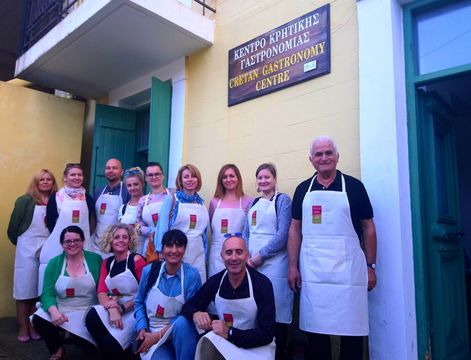
NICHE final partners’ meeting took place in Rethymno, Crete, on 13th -14th November 2019.

This year’s Slow Food Festival was and even bigger and better than before as local cuisine took centre stage once again at a series of events across the city
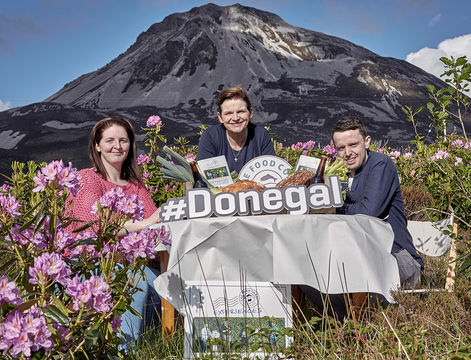
On Monday 30th September some of our most recognisable and magnificent chefs created a feast of Donegal food at the foot of Errigal, the county’s highest peak.
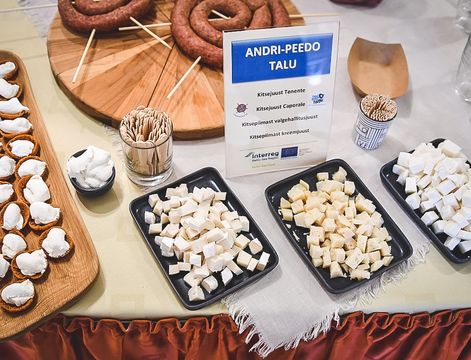
The main theme of the South Estonian Food Conference was “How to get local food in restaurants, cafes, schools?”.
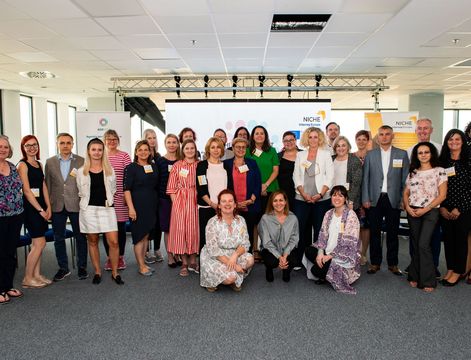
NICHE Final Conference took place in Timisoara, Romania, on September 11th 2019
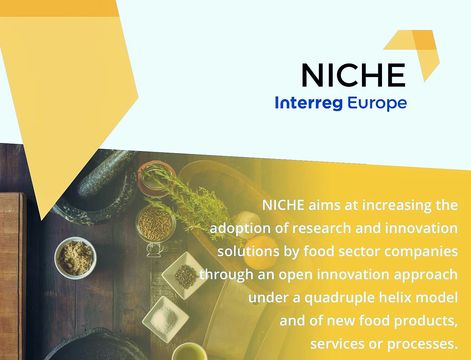
International knowledge exchange and networking experience bringing together players of the food sector from 7 EU countries in Timisoara, Romania.
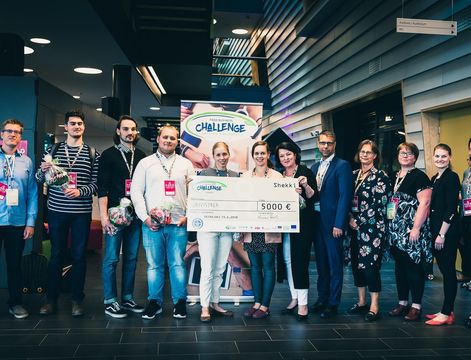
One of the actions in the NICHE Action Plan for South Ostrobothnia was to implement the Food Business Challenge.
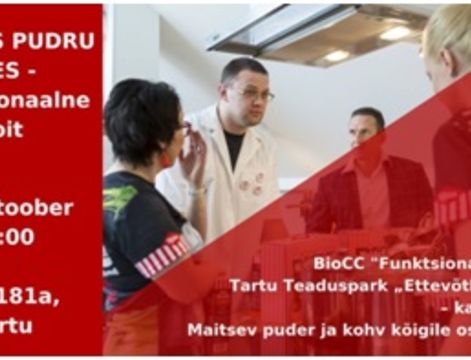
The main priority of the local action plan under implementation in Tartu Region is to boost production of healthy added value food products
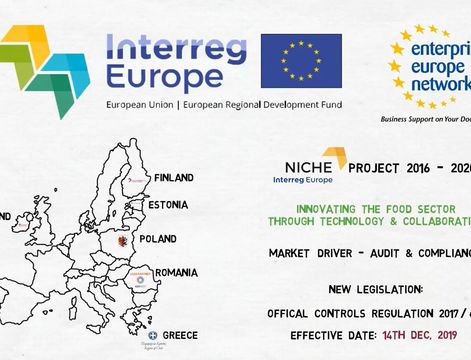
West Region Romania takes the lead in adopting a breakthrough technology for the future of the EU honey market